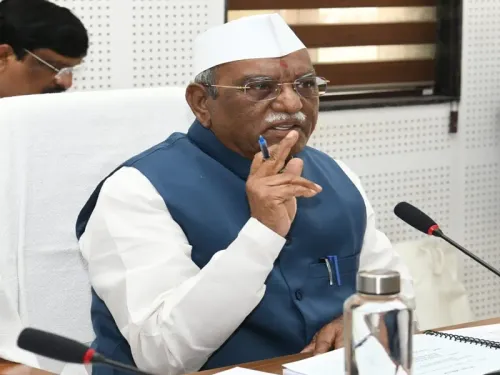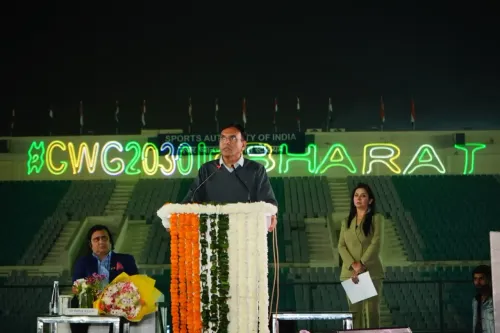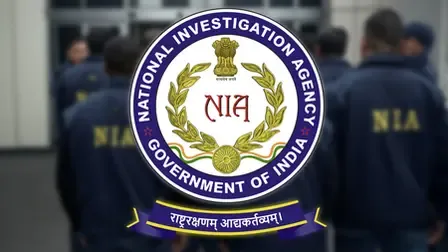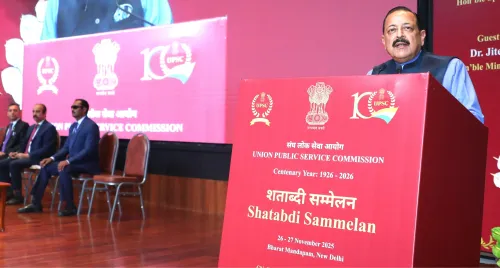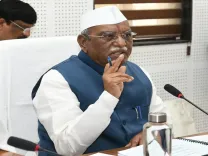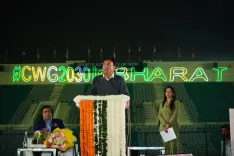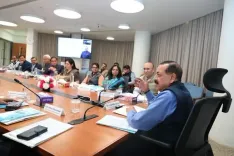Who is María Corina Machado, the Veteran Opponent of Chavez and Maduro?
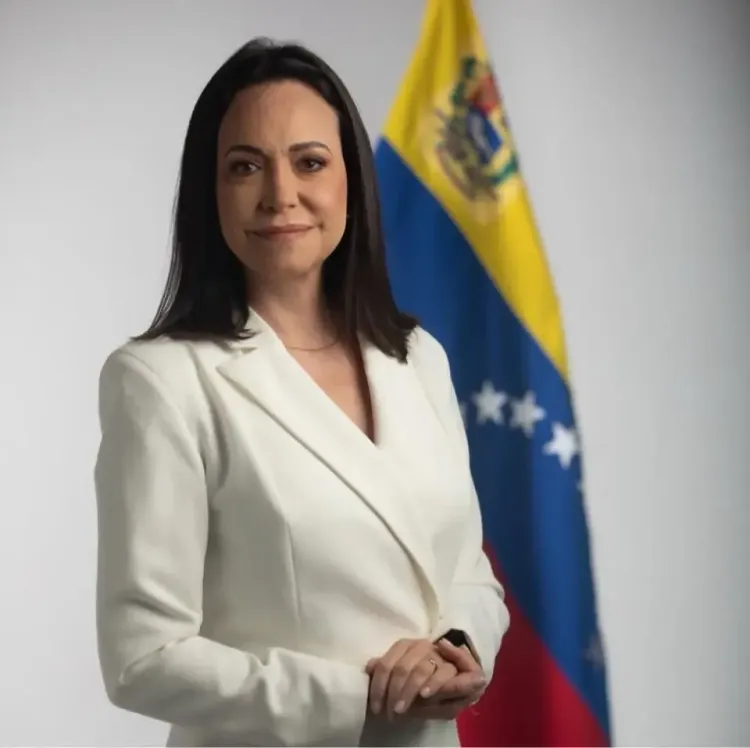
Synopsis
Key Takeaways
- María Corina Machado has been a prominent critic of Venezuelan regimes for over two decades.
- She was recently awarded the Nobel Peace Prize for her advocacy of democracy and human rights.
- Machado has faced significant personal risks, including threats and legal challenges.
- Her political journey includes founding civil organizations and participating in national elections.
- Despite adversity, she remains committed to her cause in Venezuela.
New Delhi, Oct 10 (NationPress) In the midst of political unrest in Venezuela and its ongoing tensions with the United States, which threaten to escalate into broader conflict across the Americas, seasoned politician María Corina Machado Parisca has emerged as a prominent figure. A long-time and vocal adversary of the nation’s powerful leaders, Hugo Chavez and Nicolas Maduro, for over twenty years, she has recently been honored with the Nobel Peace Prize.
Starting her career as an industrial engineer, Machado transitioned to activism and then into politics. Unlike many opposition figures who sought refuge abroad, she remained in Venezuela, maintaining a public presence, aside from a brief period of hiding in late 2024 following an attack. She was recognized for her relentless efforts to promote democratic rights for the Venezuelan people and her quest for a fair and peaceful transition from dictatorship to democracy.
Machado is the 112th laureate and the 19th woman to receive this prestigious award, becoming the first female Nobel Peace Prize winner from South America and the second Venezuelan to earn this distinction.
Her award announcement coincided with her 58th birthday, marking a significant milestone. With a degree in industrial engineering and a master’s in finance, Machado entered public service in 1992 by founding a charity for orphaned street children in Caracas. However, her political journey commenced nearly a decade later in 2001 when she helped establish the civil society organization Sumate, aimed at monitoring national elections.
Frustrated by the direction Venezuela was taking under Chavez, Machado became increasingly critical of his government, citing rising polarisation while also acknowledging some of his administration's positive initiatives. Her confrontations with Chavez began in earnest in 2002, including her signing of a decree during the attempted coup and leading the 2004 recall referendum petition, which resulted in charges of treason that were ultimately suspended.
Despite facing numerous threats, including physical assaults attributed to government supporters, Machado continued her political journey. She ran for the National Assembly as a candidate for Primero Justicia in 2010, receiving the highest number of votes nationwide. However, her membership was revoked in 2014 after she represented Venezuela at the Organisation of American States amid protests regarding her country’s deteriorating situation. One of her notable moments was clashing with Chavez during his January 2012 State of the Nation address, where she addressed critical issues such as crime and nationalization policies.
In 2011, Machado announced her candidacy for the 2012 Presidential election but lost to Henrique Capriles Radonski. After Chavez's death in 2013, she continued to oppose Maduro's regime and the socialist policies of Chavismo, becoming a leader in the anti-Maduro protests of 2014. Despite Maduro's tightening grip on power, Machado hosted a political analysis show, Contigo: Con María Corina Machado, on Radio Caracas from 2014 to 2021.
Though she expressed interest in contesting the 2019 elections amid the conflict between Maduro and opposition leader Juan Guaido, her political career was severely impacted by a 15-year ban imposed by the government in 2023. This ban, upheld by the nation's highest court, barred her from participating in the 2024 Presidential elections, where Maduro emerged victorious amidst widespread allegations of electoral fraud. As her rival Gonzalez sought asylum in the Spanish Embassy, Machado opted to remain in Venezuela, undeterred by threats and violence.
(Vikas Datta can be contacted at vikas.d@ians.in)

